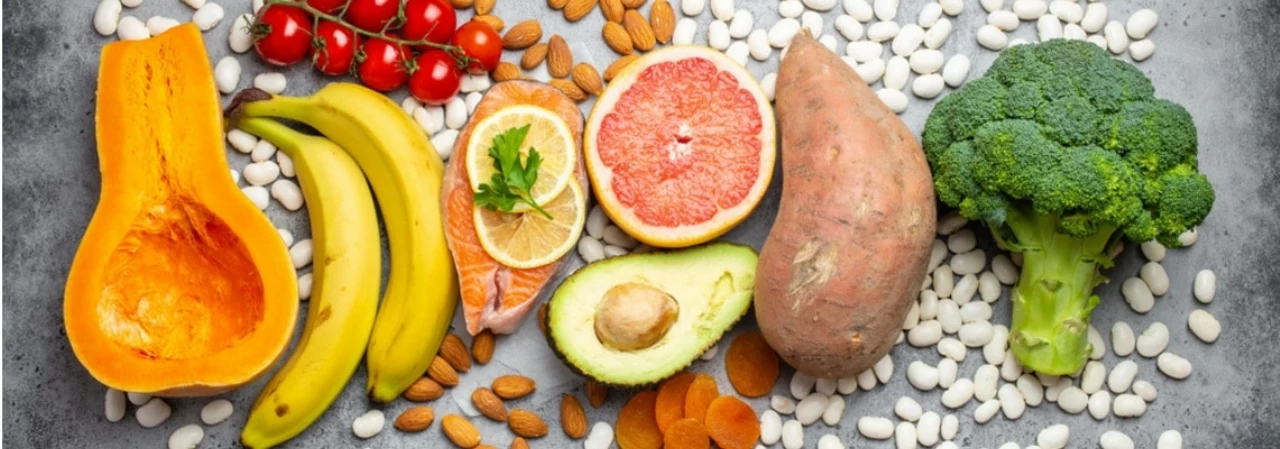Understanding Anemia and Its Effects on Reproductive Health
Anemia is a common health condition that affects millions of people worldwide. It is characterized by a decrease in the number of red blood cells or a low level of hemoglobin, the protein responsible for carrying oxygen in the blood. In this article, we will discuss the various ways that anemia and nutritional deficiencies can impact reproductive health and fertility. Understanding the connection between these factors is crucial for couples trying to conceive and for maintaining a healthy pregnancy.
The Role of Iron in Fertility and Reproductive Health
Iron is an essential nutrient that plays a crucial role in the production of hemoglobin and the overall health of our body. It is particularly important for women of reproductive age, as it helps in the regulation of the menstrual cycle and supports the growth of the fetus during pregnancy. A deficiency in iron can lead to anemia, which can have a significant impact on fertility. Studies have shown that women with iron-deficiency anemia are more likely to experience difficulties in conceiving and are at a higher risk of experiencing miscarriages, preterm births, and low birth weight babies.
How Vitamin B12 and Folic Acid Affect Fertility
Vitamin B12 and folic acid are essential nutrients that play a vital role in the synthesis of DNA, cell division, and the formation of red blood cells. Both of these nutrients are crucial for maintaining optimal reproductive health and fertility. A deficiency in either vitamin B12 or folic acid can lead to anemia, which can negatively impact fertility. For example, a deficiency in folic acid has been associated with an increased risk of neural tube defects in newborns, while low levels of vitamin B12 can lead to an increased risk of miscarriage.
Anemia and Hormonal Imbalances
Anemia can also affect fertility by causing hormonal imbalances in the body. Hormones play a crucial role in regulating the menstrual cycle and the process of ovulation, which is essential for conception. Anemia can lead to a decreased production of certain hormones, such as estrogen and progesterone, which can result in irregular menstrual cycles, missed periods, or even complete cessation of menstruation. These hormonal imbalances can make it difficult for a woman to conceive and maintain a healthy pregnancy.
The Impact of Anemia on Male Fertility
While anemia is more commonly associated with female fertility, it can also affect male reproductive health. Iron deficiency anemia, for example, can lead to a reduced production of sperm and a decrease in sperm motility, both of which can negatively impact fertility. Furthermore, low levels of vitamin B12 and folic acid can also contribute to poor sperm quality and an increased risk of chromosomal abnormalities in sperm, which can make it difficult for a couple to conceive.
Addressing Nutritional Deficiencies to Improve Fertility
One of the most effective ways to improve fertility and reproductive health is by addressing any underlying nutritional deficiencies. This can be achieved through a combination of dietary changes, supplementation, and lifestyle modifications. Eating a balanced diet rich in iron, vitamin B12, and folic acid can help to prevent anemia and support optimal fertility. In some cases, supplementation may be necessary to correct deficiencies and improve reproductive health.
Incorporating Iron-Rich Foods into the Diet
Some of the best dietary sources of iron include red meat, poultry, fish, beans, lentils, tofu, and fortified cereals. Consuming these foods regularly can help to prevent iron deficiency anemia and support fertility. Additionally, it is important to consume foods rich in vitamin C, as this nutrient helps to enhance the absorption of iron in the body.
Increasing Intake of Vitamin B12 and Folic Acid
Vitamin B12 can be found in animal-based products such as meat, poultry, fish, eggs, and dairy products. Folic acid is plentiful in green leafy vegetables, beans, peas, and fortified cereals. Consuming a diet rich in these nutrients can help to prevent deficiencies and support reproductive health. Pregnant women and those trying to conceive should also consider taking a prenatal vitamin that contains the recommended daily amounts of vitamin B12 and folic acid.
Seeking Medical Advice for Anemia and Fertility Issues
If you suspect that you may have anemia or are experiencing fertility issues, it is crucial to consult with a healthcare professional. They can help to identify the underlying cause of your symptoms and recommend the appropriate treatment options. Addressing anemia and nutritional deficiencies is an important step in improving fertility and increasing the chances of a healthy pregnancy.




Khanyisa Mhlongo
I was struggling to get pregnant for years, and turns out I had low iron AND B12. My doc didn't even test me for it until I begged. Once I started supplementing, boom-pregnant in 3 months. This isn't just theory, it's real life. Don't ignore your labs, ladies.
Nancy Lowry
Of course you're all just now figuring this out. Iron deficiency has been linked to infertility since the 80s. If you're trying to conceive and not taking a high-dose iron supplement, you're basically gambling with your future. Stop being lazy and read the science.
Hobert Finn Bodfish
Folks, if you're not taking 65mg elemental iron daily + B12 + folate, you're doing it wrong. 🤦♂️ My wife's ferritin was 8. Now it's 89. We have a 1-year-old. Stop googling 'natural remedies' and just take the damn pills.
Andrea Galetto
The fact that this even needs to be explained is a testament to how far we've fallen. Modern diets are nutritional deserts. If you eat processed food and call it 'healthy,' don't be surprised when your ovaries stop working.
Daniel Rogers
You got this! 🌱 I know it's overwhelming but small changes add up. Start with one iron-rich meal a day and a prenatal. You're not alone. So many of us have been where you are. 💪
Chris Remo
My cousin tried for 2 years. No luck. Then she started eating spinach every day and took a cheap B12 gummy. Got pregnant 4 months later. No meds, no IVF. Just food and a little discipline. It's not magic, it's biology.
Michael Herr
Iron deficiency is the silent fertility killer. Men need to check their levels too. Low iron = low sperm count. Simple. No drama. Just science.
Crystal Magnant
I took 3 different prenatal vitamins before I found one with real folate (not folic acid). Huge difference. My doctor didn't even know the difference. 😅
Danie Joy
They don't want you to know this. Big Pharma profits from IVF. They hide the truth about nutrition. I read a study from 1972 that said the same thing. Why aren't we being told? Who's controlling the narrative?
Katherine Stapp
I'm so sick of this American obsession with 'fixing' fertility with pills. In my village in India, women just ate lentils, ghee, and turmeric. No labs. No doctors. Just food. And they had babies. We lost something important.
Frank De Silva
Interesting. But let's not pretend this is revolutionary. The medical establishment has known this for decades. What's really being suppressed? The fact that most women are too busy working to cook real food?
KJ Miller
This hits deep. My wife and I went through 18 months of trying. We did everything. Then we started eating liver once a week. And guess what? We got pregnant. Not because of magic. Because our bodies were finally fed properly.
Claire Battista
I wish I'd known this sooner. I was so focused on 'clean eating' and avoiding red meat that I became anemic. Took me 6 months to recover. Fertility didn't come back until my ferritin hit 50. Don't make my mistake.
Erin DeGroot
I was diagnosed with iron-deficiency anemia after a miscarriage. My OB didn't mention it until I brought up my fatigue. Now I take iron every day, and I'm 20 weeks pregnant. Please, if you're trying, get tested. It's a simple blood test.
Stephanie Bryant
I took ferrous sulfate and got constipated so bad I had to stop. Found a chelated iron and it's a game changer. Also, take it with orange juice. Don't drink coffee right after. Trust me.
Drashti patel
In India, we call it 'lal patta' - the red leaf. Spinach, beet greens, amaranth. Grandmas knew. They cooked it with ghee and spices. No pills. Just food. Maybe we forgot the wisdom of our ancestors.
Kaitlin Crockett
What about magnesium? I read it helps with iron absorption.
Manvika Gupta
i was so tired all the time and thought it was just stress. turns out my iron was 12. my doc said 'oh that's low' like it was normal. took 3 months to get back up. now i eat lentils every day. and yes, i still get tired sometimes but not like before. you're not alone. ❤️
Chloe McDonald
I love that we're talking about this. I'm trying to conceive and I just started eating more spinach and eggs. It feels good to take charge of my health. Small steps, right? 🙌
Tracy Blake
It's not just about nutrients. It's about the soul. Our ancestors ate whole foods, lived with the seasons, didn't stare at screens for 12 hours a day. Modern life is a fertility trap. We're not just deficient in iron-we're deficient in rhythm, in connection, in stillness. The body remembers. It knows. We just have to listen.